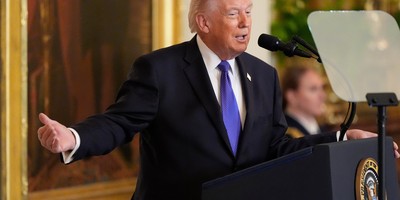He was certainly brave, but was he crazy? That's what I wondered when I picked up Rory Stewart's "The Places in Between," an account of the Scotsman's 2002 solo walk across Afghanistan. That's right, he walked. Many Afghans doubted he would survive the journey. Just weeks after the fall of the Taliban, in the dead of winter, in some of the most remote and difficult terrain in the inhabited world, he went from village to village on foot. Relying on the tradition of hospitality, Stewart found welcome, sustenance, and shelter (mostly, but not always) graciously offered by people who had very little to share.
Stewart, a British Foreign Service officer, (he served in southern Iraq after the Iraq War -- the subject of another good book, "The Prince of the Marshes") and a Harvard professor, relied upon his knowledge of Farsi and Urdu, his understanding of Afghan history and culture, and his own hardy constitution to get him through. The portrayal of Afghanistan that resulted was illuminating and honest. He was unsparing about the deception and cruelty he witnessed, as well as the warmth and fellowship. I recall in particular the vignette about local children throwing stones at a dog for fun. For several years, Stewart lived in Kabul, where he established a charitable foundation seeking to promote local crafts.

So when Stewart raises a yellow flag about our escalating commitment to Afghanistan, we should take notice.
The rationale that President Obama has offered for our ramped-up engagement in Afghanistan, Stewart argues in a piece for the London Review of Books, runs as follows: We cannot permit the Taliban to return to power or they will revive the alliance with al-Qaida and will plot more catastrophic attacks on the United States. In order to defeat the Taliban, we must create a functioning state in the country, and in order to create a functioning state, we must defeat the Taliban. Obama seems keen to increase our role in Afghanistan to highlight the contrast with his predecessor. Bush, Obama ceaselessly repeats, fought "a war of choice" whereas Obama will fight only "a war of necessity."
Recommended
Obama argues that Afghanistan represents such a war. But does it? In order to achieve the goal of a "stable" Afghanistan, President Obama has deployed (for starters) 17,000 more U.S. troops at a preliminary cost of $5.5 billion. His stated goals for this poor, decentralized, and shell-shocked nation match in ambition and grandiosity the claims that George W. Bush made for a revived Iraq -- but with arguably less foundation. "There are no mass political parties in Afghanistan and the Kabul government lacks the base, strength or legitimacy of the Baghdad government," Stewart writes. There is almost no economic activity in the nation aside from international aid and the drug trade. Stewart notes that while Afghanistan is not a hopeless case, it is not at all clear that it is "the most dangerous place on Earth" as advocates of a massively increased U.S. and British role argue. In fact, neighboring Pakistan, sheltering al-Qaida (including, in all likelihood, bin Laden) and possessing nuclear weapons, represents a far graver threat to our national security. Stewart believes that bin Laden operates out of Pakistan precisely because Pakistan, a more robust state than Afghanistan, restricts U.S. operations. Nor is it clear that Afghanistan poses more of a threat than, say, Somalia or Yemen. Obama promises a "comprehensive approach" that will promote "a more capable and accountable Afghan government ... advance security, opportunity and justice ... (and) develop an economy that isn't dominated by illicit drugs."
This is more than we have the knowledge or ability to accomplish, Stewart argues. As for the necessity, he is unconvinced that the Taliban should loom so large as a threat to the West. He thinks it unlikely that the Taliban will regain control of the entire country (though they do control some provincial capitals). Unlike the situation in 1996, the Afghans now have experience of Taliban rule. "Millions of Afghans disliked their brutality, incompetence and primitive attitudes. The Hazara, Tajik and Uzbek populations are wealthier, more established and more powerful than they were in 1996 and would strongly resist any attempt by the Taliban to occupy their areas." In any case, a more circumscribed foreign role should be sufficient to prevent the revival of terrorist training camps -- as it has since 2001.
One might have thought, listening to the opponents of the Iraq War, that a certain modesty about nation building would be axiomatic among liberals. Instead, we are witnessing something else entirely -- the approach is now brainlessly partisan. Your nation building is a war crime. My nation building is a national security necessity. Stewart's approach is refreshingly impartial and thought provoking.

























Join the conversation as a VIP Member